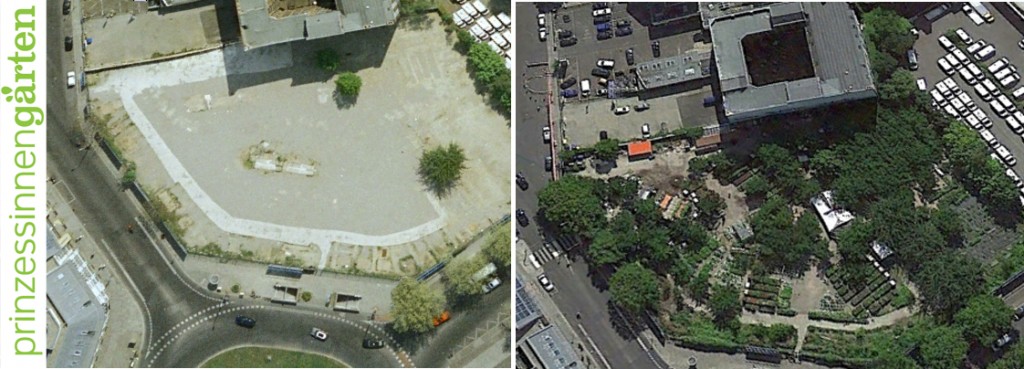
In Berlin’s Kreuzberg district, a group of residents took over a remote part of public space. Along with friends, activists and neighbours, Nomadisch Grün cleaned up a wasteland and laid out the Prinzessinnengärten (Princess gardens) with a flexible and temporary setup for the cultivation of vegetables, fruits and flowers. Composed of separate, transportable containers and barrels, this is a good example of mobile gardening. This movement finds unused, vacant lots, such as empty parking lots, construction sites and roofs, and puts these into use for shorter or longer periods of time by turning them into urban farming sites or green meeting places. Local food is produced in the Princess gardens, but more importantly, a local community has evolved around it, which has brought more cohesion to the neighbourhood. The gardens furthermore contribute to a better local microclimate and a richer ecosystem. Even if, in principle, it is only temporary, insects, birds and small mammals such as bats benefit from the great diversity of flowering and fruit-bearing plants.
-Berlin (D) 2016
-Nomadisch Grün
more info: Nomadisch grun and Prinzessinnegarten
more info: Prinzessinnengarten Berlin slide show